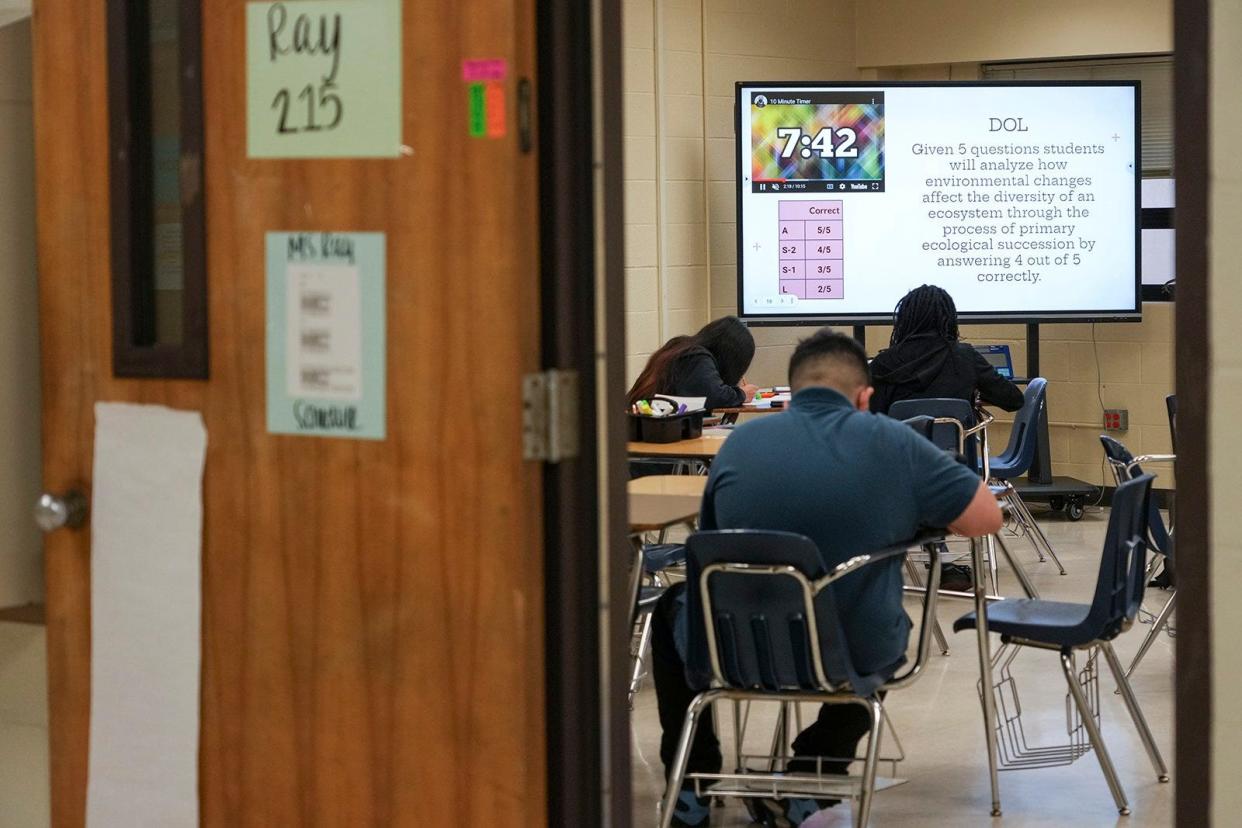Grumet: Want to tackle special education backlog? Hire more specialists to screen students

Imagine trying to build a house with only a third of the construction crew that’s needed.
Or imagine you’re holding an event, with a ballroom filled with guests, but only a third of the waiters and catering staff showed up.
It would be a disaster. Nothing would finish on time. No matter how hard you leaned on people to stretch their hours and work harder, important tasks would fall through the cracks.
Sadly, that’s the plight of the Austin school district on something far more important than a home build or a benefit dinner.
The district is woefully behind on screening students for special education services — a crucial first step before students with autism, learning disabilities or other challenges can get the services they need. The heart of the problem is the lack of staffers to do this critical work.
The Austin school district should have 72 educational diagnosticians and school psychologists to perform special education screenings. But as my colleague Keri Heath recently reported, only 21 of those positions are filled.
That’s not even 30 percent.
That shortage means a backlog of more than 1,800 students who are waiting to be evaluated or reevaluated. Some are waiting five to nine months for evaluations that should be done within 45 days.
For students who are already struggling, such a delay becomes a lost year of school.
The Texas Education Agency announced late Friday that it would install a conservator to oversee the Austin school district’s special education department. No doubt something needs to be done. But this move feels a bit like the state sending in new generals to issue marching orders, when the real problem is a dire shortage of people on the front lines to execute the mission.
For its part, the Austin school district has stepped up its recruiting efforts and offered $20,000 bonuses for specialists who can meet "high-quality evaluation targets and timelines." In recent years, it also has used some outside consulting firms to help with evaluations.
In reality, though, this shortage of specialists is much bigger than an Austin problem. State lawmakers, sitting on a $33 billion surplus, have an opportunity and an obligation to help address it.
Texas has nowhere near enough school psychologists, especially at a time when we recognize mental health support is an essential part of school safety.
Experts recommend a ratio of one school psychologist for every 500 students. In Texas, we average one school psychologist for every 2,597 students — far worse than the national average of one school psychologist for every 1,151 students.
“Additionally, numerous rural counties have one school psychologist or none in the area,” according to the Texas Association of School Psychologists.
Funding is part of the problem. In a report issued in December, the Texas Commission on Special Education Funding — a seven-member panel primarily made up of lawmakers — found the state was underfunding school districts by $1.8 billion, just in the realm of special education services.
But there’s also a pipeline problem. Not enough people are choosing these career paths, earning the necessary credentials or going to work for public school districts.
Most school psychologists, for example, need advanced specialist training beyond a four-year college degree. Data from the National Association of School Psychologists show those in the southeastern part of the country, including Texas, earn an average salary of $65,397, the lowest of any region in the country.
The full range of special education workers “are in huge demand across Texas public schools,” the Texas Commission on Special Education Funding wrote in its report. “It is especially difficult to recruit and retain these professionals in the public school setting as many of these positions can generally work either in the public school setting or the private sector.”
The commission recommended millions of dollars in grants for school districts to help recruits obtain their education or certification in exchange for working a certain number of years.
Last week’s announcement of the state intervention in Austin schools triggered the full range of reactions on social media: Some conservatives crowed, quite unfairly, that this was proof the Austin school district was poorly run. Some liberals lamented, quite prematurely, that this move signaled a brazen power grab by the state.
We have a very real problem when our most vulnerable students go for months on end without the support they need. It’s an Austin problem. It’s a Texas problem. And it needs to be tackled as a staffing problem if we have any hope of doing right by the students who deserve a good education and a chance at success.
Grumet is the Statesman’s Metro columnist. Her column, ATX in Context, contains her opinions. Share yours via email at bgrumet@statesman.com or via Twitter at @bgrumet. Find her previous work at statesman.com/news/columns.
This article originally appeared on Austin American-Statesman: Grumet: Austin school district needs more special education experts

